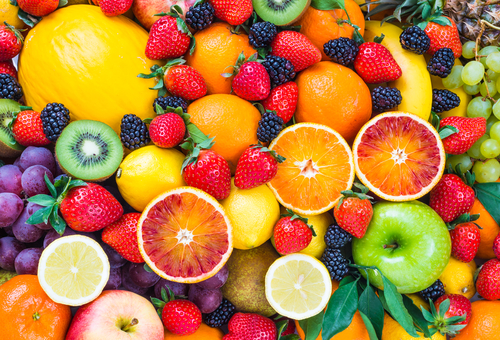Eating Foods to Improve Overall Health and Colon

One key to a healthy body is healthy digestion. The colon is a crucial part of the process as it serves as the final stage in the digestive system. Although the small intestine absorbs all the nutrients, it is the job of the large intestine or colon to absorb any remaining fluid and electrolytes, and then rid the body of waste in the form of stool. There are many different conditions which can cause the colon to function poorly. These conditions include inflammatory bowel diseases such as ulcerative colitis and Crohn’s disease, diverticular disease, irritable bowel syndrome and colorectal cancer. These conditions can be treated by diet and lifestyle modifications, medications and/or surgery.
Despite all we know about the colon and how it works, we are still only learning the role of diet, nutrients and physical activity in promoting colon health. Thankfully, no foods are known to cause or worsen inflammatory bowel disease or irritable bowel syndrome. Some studies support a beneficial roll of different probiotics in patients with these conditions. Diverticular disease is definitely more common in populations on low fiber diets. We used to think avoiding hard seeds and nuts was important in diverticular disease but recent studies have debunked this.
The best data on colon health comes from colon cancer studies. Recent studies show that foods that contain high fiber may not be good only for the fiber content but because they are rich in pigment molecules-the chemicals that give fruit and vegetables color. These chemicals seem to protect against some of the processes that cause cancer.
The following foods are essential for colon health. By incorporating these healthy and delicious foods into your diet, you will be on your way to a healthy colon.
Fruits, Lentils and Beans
Fruits and vegetables are essential for colon health. All fruits and vegetables have pigment molecules and fiber. Prunes provide the most fiber but come with a lot of calories. Raspberries, blackberries, and apples provide a good amount of fiber, but without the unwanted calories. Lentils and beans are also high in fiber and are easy to introduce into your diet since they are delicious in soups, stews or chili.
Foods with Vitamin D
Dairy products like yogurt contain a lot of vitamin D, which has been linked to a reduced risk of colorectal cancer. Yogurt specifically contains active bacterial cultures, which help maintain an important balance between good and bad bacteria which supports your gastrointestinal health. It’s also filled with calcium, which plays a role in lowering the risk of colon-related diseases. Add some fruit to your yogurt for an even better colon healthy snack. Other foods rich in vitamin D include tofu and hard boiled eggs.
Foods Rich in Folic Acid
Many of the foods rich in folic acid are also good for colon health and cancer prevention. Some good examples are brown rice, leafy green vegetables (which also provide a good deal of fiber) and citrus fruits, such as oranges, which give those beneficial pigment molecules. Other foods with folic acid include beans, breads and cereals.
Fish, Specifically Salmon
Research suggests that the omega-3 fatty acids found in many types of fish can reduce inflammation and improve the function of colon cells. They also contain a good amount of vitamin D.
Exercise and Physical Activity
Staying physically active seems to go beyond benefits of heart health. There is mounting evidence that regular exercise helps patients with inflammatory bowel disease and substantially lowers the risk of colon cancer (as well as breast cancer and uterine cancer).
What to Avoid
- Consuming too much processed or red meat, especially when cooked at high temperatures
- Consuming excessive alcohol in any form
By staying physically active, consuming the foods discussed above and limiting your intake of red meat, processed meat, and all forms of alcohol, you are giving yourself the best chance to avoid colon cancer and other conditions which may harm the colon.
